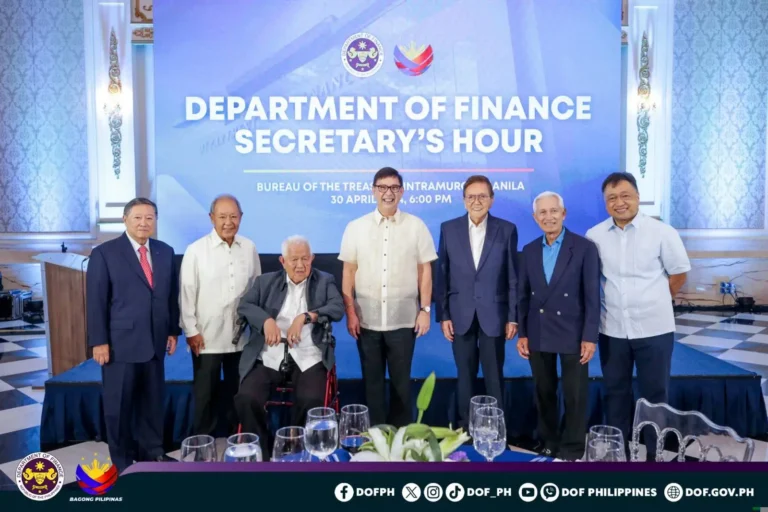The undue delay in the implementation of the 2019 General Appropriations Act (GAA), brought about by the three-month deadlock between the two chambers of Congress over the final version of this budget bill, has prevented the Duterte administration from spending P43.7 billion on its economic stimulus programs in the year’s first two months alone.
This means that the government, despite its strong fiscal position partly as a result of tax reform, was not able to spend some P740.7 million per day over the January-February 2019 period, said Department of Finance (DOF) Assistant Secretary Antonio Lambino II, “representing idle funds that the Duterte administration could have otherwise spent on priority programs to sustain—and boost—the growth momentum and expand social protection initiatives for the poor.”
Although tax policy and administration reforms have led to higher collections by the Bureaus of Internal Revenue (BIR) and of Customs (BOC) since last year, Lambino said the government was not able to spend all of the programmed funds at the onset of 2019 because Malacañang had to operate since January on the 2018 reenacted budget.
It will have to continue running the government on last year’s GAA until the 2019 budget plan will have been approved by President Duterte, he added.
Data from the Bureau of the Treasury (BTR) furnished to Finance Secretary Carlos Dominguez III showed that actual cash expenditures totalled P490.7 billion over the January-February period, or P43.7 billion less than the estimated programmed funds of P534.4 billion for these first two months of the year—or equivalent to P740.7 million in available funds per day that the government was not able to invest in its priority programs and projects.
The national government could only spend P212.2 billion in January as against the estimated programmed funds of P267.9 billion, or lower by P55.7 billion. In February, cash expenditures accelerated to P278.5 billion against the estimated programmed funds of P266.5 billion, higher by P12 billion. The net total for the first two months is a negative P43.7 billion relative to program.
Lambino, who is DOF spokesman, recalled that as the Senate-House budget impasse entered its second month in February, the President’s economic managers expressed concern over its adverse impact on the economy, prompting them to revise and pare their original gross domestic project (GDP) growth target for 2019 to the 6-7 percent range from the previous 7-8 percent.
“The No. 1 casualty of this forced under-spending is President Duterte’s signature ‘Build, Build, Build’ program,” said Lambino, “as it has barred the government from frontloading investments in big-ticket infrastructure projects during the best time of the year to do construction, and for projects that have the highest multiplier effect on the domestic economy.”
The budget impasse ended this week after Senate President Vicente Sotto III finally agreed to sign the 2019 GAB, but with “strong reservations’ over multibillion-peso outlays for public works and other programs that senators claimed were itemized or realigned by their House counterparts after the bill was already ratified by both chambers before the Congress took its Feb. 9-May 19 break for the midterm elections.
“Our economic managers have expressed concern over the negative impact of the budget delay because we are already past the best time of the year to front-load the implementation of the ‘Build, Build, Build’ projects,” he said.
“Given that it would take weeks for Malacañang to review the Congress-submitted GAB, for the President to sign it, and for the concerned agencies to implement their respective projects, we can expect the 2019 GAA to be fully on stream on or before the middle of this year yet.”
The BTr reported earlier that total revenue collections for January reached P256.7 billion, notching a 7 percent increase compared to P238.9 billion recorded in the same month last year. Tax revenues accounted for 92 percent or P235 billion of January collections, while the remaining 8 percent or P21.8 billion were from non-tax sources.
The BIR raised P185.1 billion in January, 5 percent or P9.5 billion better than the P175.6 billion for the same month a year ago, partially because of the increased excise tax on some products identified under the Tax Reform for Acceleration and Inclusion (TRAIN) Law.
The BOC, meanwhile, posted 18 percent growth over last year, with January collections of P48.4 billion.
Income and revenue generated by the BTr amounted to P9.0 billion for January, 12 percent higher compared with the 2018 performance.
Collections from other offices (non-tax) for the month of January amounted to P12.8 billion, broadly similar to January 2018.
-oOo-





